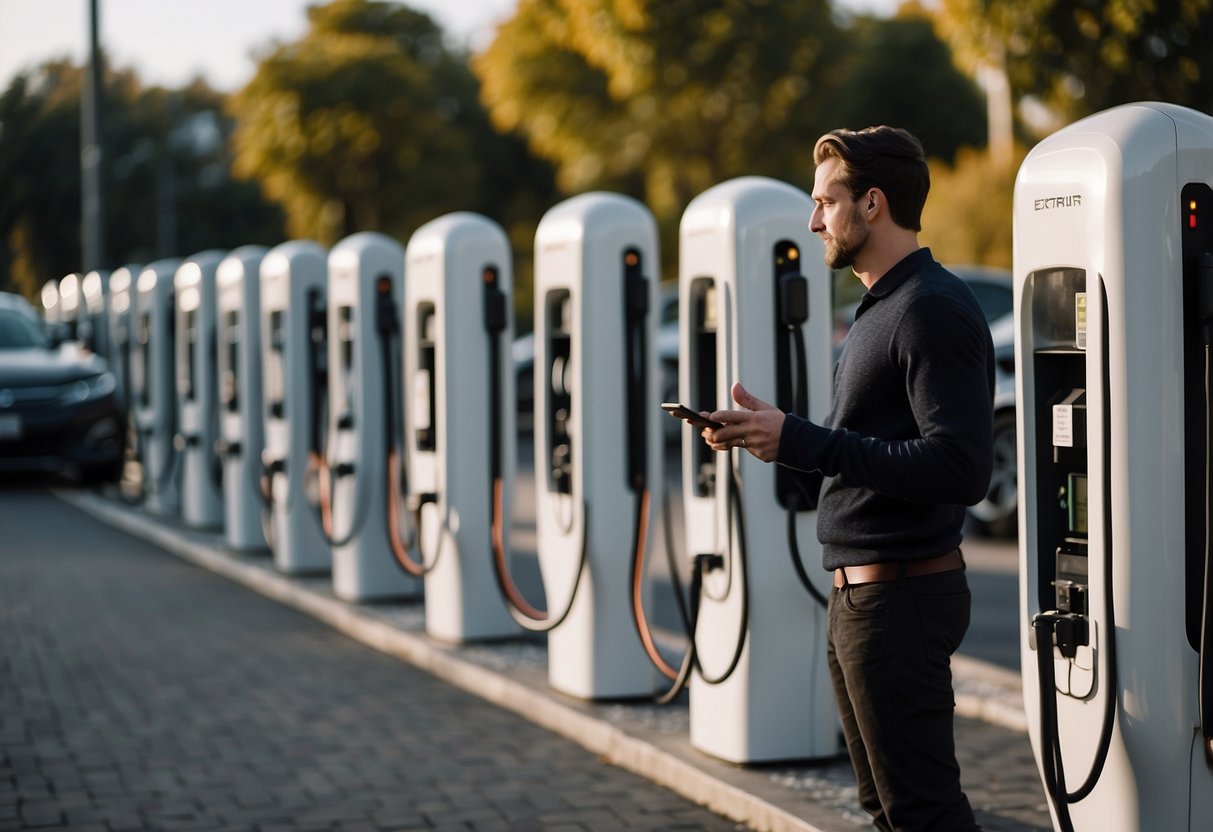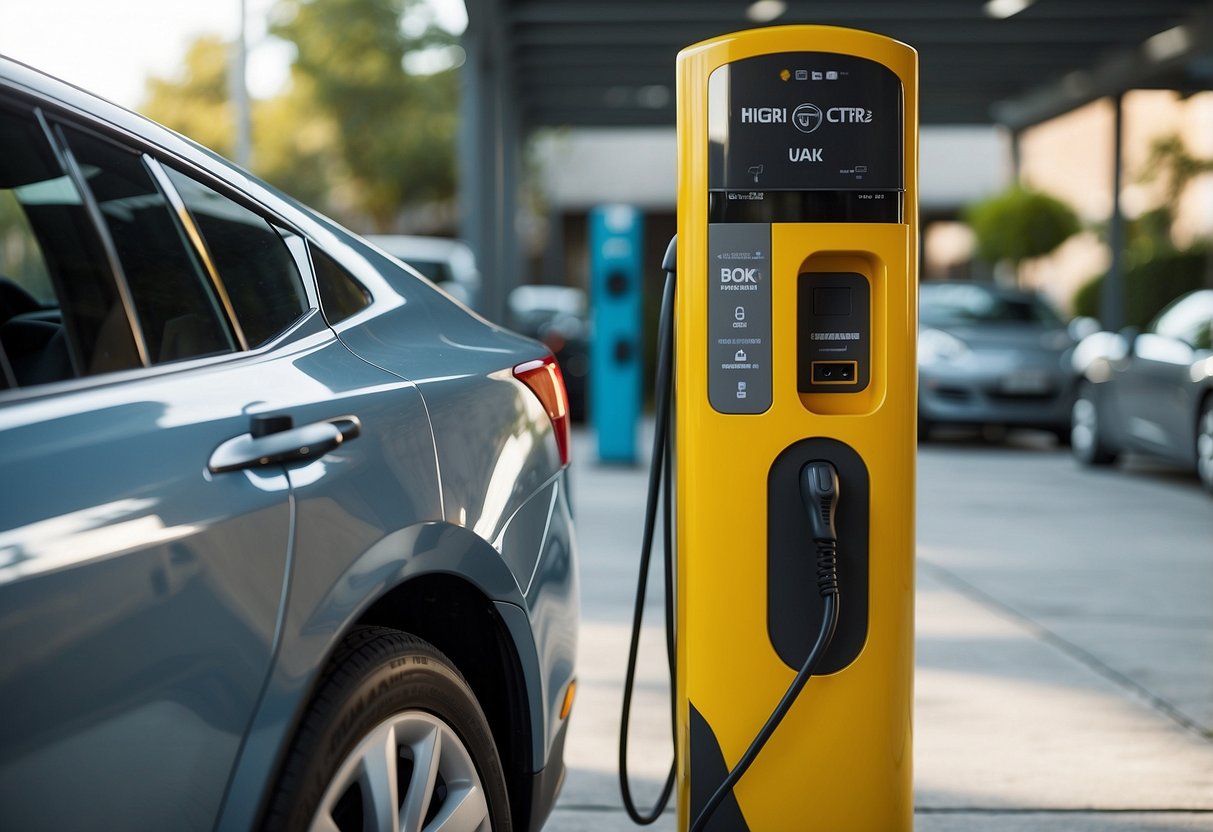
Site Assessment
Choosing the right location for your charger involves evaluating both practicality and safety. The charging station should be close enough to the vehicle’s parking spot to allow the charging cable to reach comfortably.
Accessibility is another critical consideration. Ensure that the charger is positioned where it won’t obstruct walkways or be damaged by passing vehicles. Weather conditions should also be taken into account; placing the charger under cover or in a garage can protect it from the elements.
Adequate lighting and security in the area can enhance the usability and safety of the charging station.
Professional vs. DIY Installation
Deciding whether to hire a professional or attempt a DIY installation depends on your expertise and the complexity of the installation. Professional installation ensures compliance with all safety and regulatory standards.
Professionals can handle any unexpected challenges that might arise, such as electrical panel upgrades or complex wiring issues. While hiring a professional requires an additional investment, it can save time and avoid potential risks.
On the other hand, DIY installation might be feasible for those with substantial electrical knowledge and adherence to safety guidelines. However, it’s crucial to remember that incorrect installation can lead to serious hazards, including electrical fires or damage to the vehicle charger.
Cost Factors

When choosing the right electric vehicle charger, understanding the cost factors is crucial. These include the initial price of the charger, expenses related to installation, and ongoing operational costs.
Charger Price
The price of an electric vehicle charger can vary significantly. Basic Level 1 chargers, often included with the vehicle, are generally less expensive. Level 2 chargers, which offer faster charging times, range between $300 to $700. High-end models with advanced features can go up to $1,200. It’s essential to compare the capabilities of each model with its price to ensure it meets specific needs.
Installation Costs
Installation costs for an electric vehicle charger depend on various factors. Hiring a licensed electrician is recommended, as improper installation can lead to safety issues. The complexity of the installation, such as the distance from the electrical panel and the need for a dedicated circuit, influences the cost. On average, homeowners may spend between $200 to $1,200 on installation.
Operational Expenses
Operational expenses for electric vehicle chargers include electricity costs and potential maintenance. Depending on electricity rates, charging an electric vehicle can be cheaper than fueling a gasoline vehicle. Maintenance is typically minimal, but it’s wise to consider any potential repairs or replacements. Some regions offer incentives or lower utility rates for EV charging, which can reduce operational expenses further.
Incentives and Rebates
Choosing the right electric vehicle charger can be more affordable when taking advantage of various incentives and rebates. These financial aids can come from federal programs, state and local governments, or utility companies.
Federal Programs
Federal programs offer significant incentives for purchasing and installing electric vehicle chargers. The U.S. government provides tax credits under programs like the Alternative Fuel Infrastructure Tax Credit. This credit can cover up to 30% of the installation costs, capped at $30,000 for commercial installations and $1,000 for residential installations.
Additionally, there are grants available through the Department of Energy for businesses and organizations. These can help offset the cost of installing charging infrastructure. Federal incentives are designed to promote the adoption of electric vehicles and the expansion of the charging network.
State and Local Incentives
State and local incentives vary widely but can substantially reduce the cost of electric vehicle chargers. For example, California offers the California Electric Vehicle Infrastructure Project (CALeVIP), providing rebates for businesses and multi-unit dwellings.
In New York, the Charge Ready NY program offers rebates for installing Level 2 charging stations. Local governments may also provide additional incentives, like reduced permitting fees or expedited permitting processes. Checking with local authorities can reveal hidden savings opportunities specific to one’s area.
Utility Company Programs
Utility companies often have programs that provide rebates or lower electricity rates for electric vehicle charging. For instance, some utilities offer reduced rates during off-peak hours to encourage nighttime charging.
Others, like Duke Energy, provide rebates for households that install Level 2 chargers. These programs can greatly reduce both the initial investment and the long-term operational costs associated with EV chargers. Homeowners and businesses should consult their utility providers to learn about the specific programs available to them.



